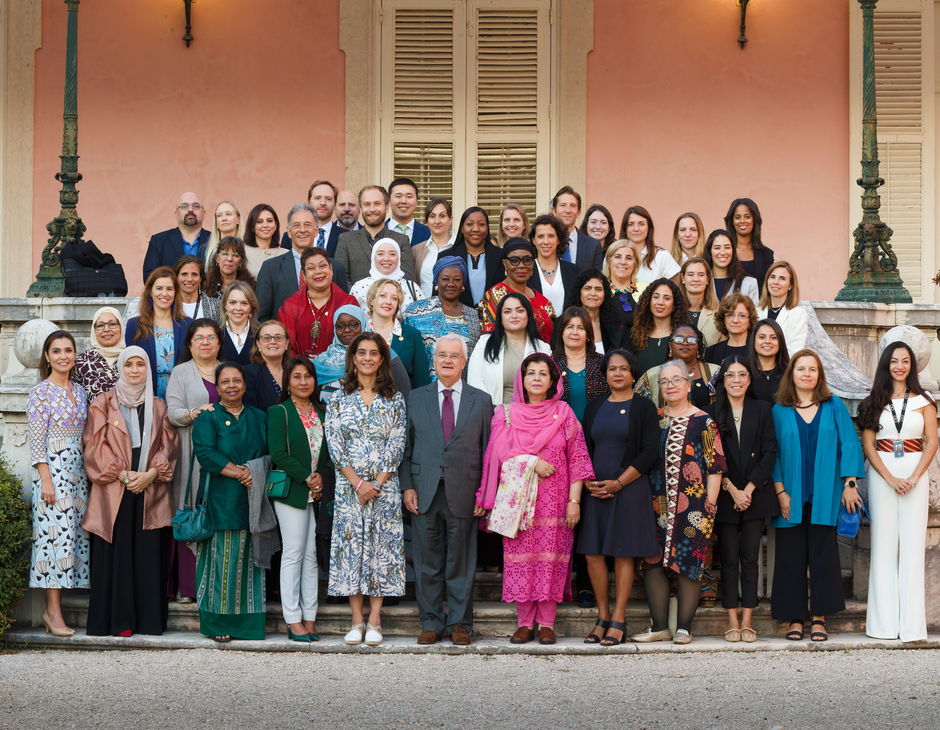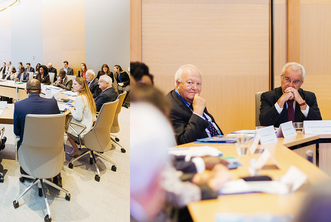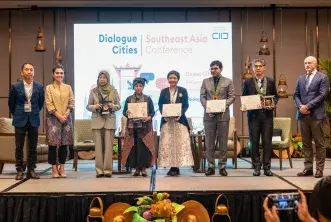Women Peacebuilders Take Centre Stage in Lisbon: A High-Level Roundtable on Inclusive Peace
In the historic halls of Queen’s Library at the Palácio das Necessidades, a new chapter was added to the legacy of peace and dialogue. The Ministry of Foreign Affairs of Portugal, the International Dialogue Centre - KAICIID, and the International Civil Society Action Network (ICAN) convened a high-level roundtable that placed women peacebuilders of the ICAN-spearheaded Women’s Alliance for Security Leadership (WASL), at the heart of the global conversation on security and inclusion. WASL is the first global women’s network to embrace women’s leadership in addressing violent extremism and promoting peace, resilience, equal rights, and pluralism.
The gathering, “Advancing Inclusive Peace: Women’s Leadership in Peacebuilding and Dialogue”, marked 25 years since the adoption of UN Security Council Resolution 1325. Yet, as was evident in the stories shared, the struggle to translate its promises into practice remains unfinished.
A Room Filled with Courage
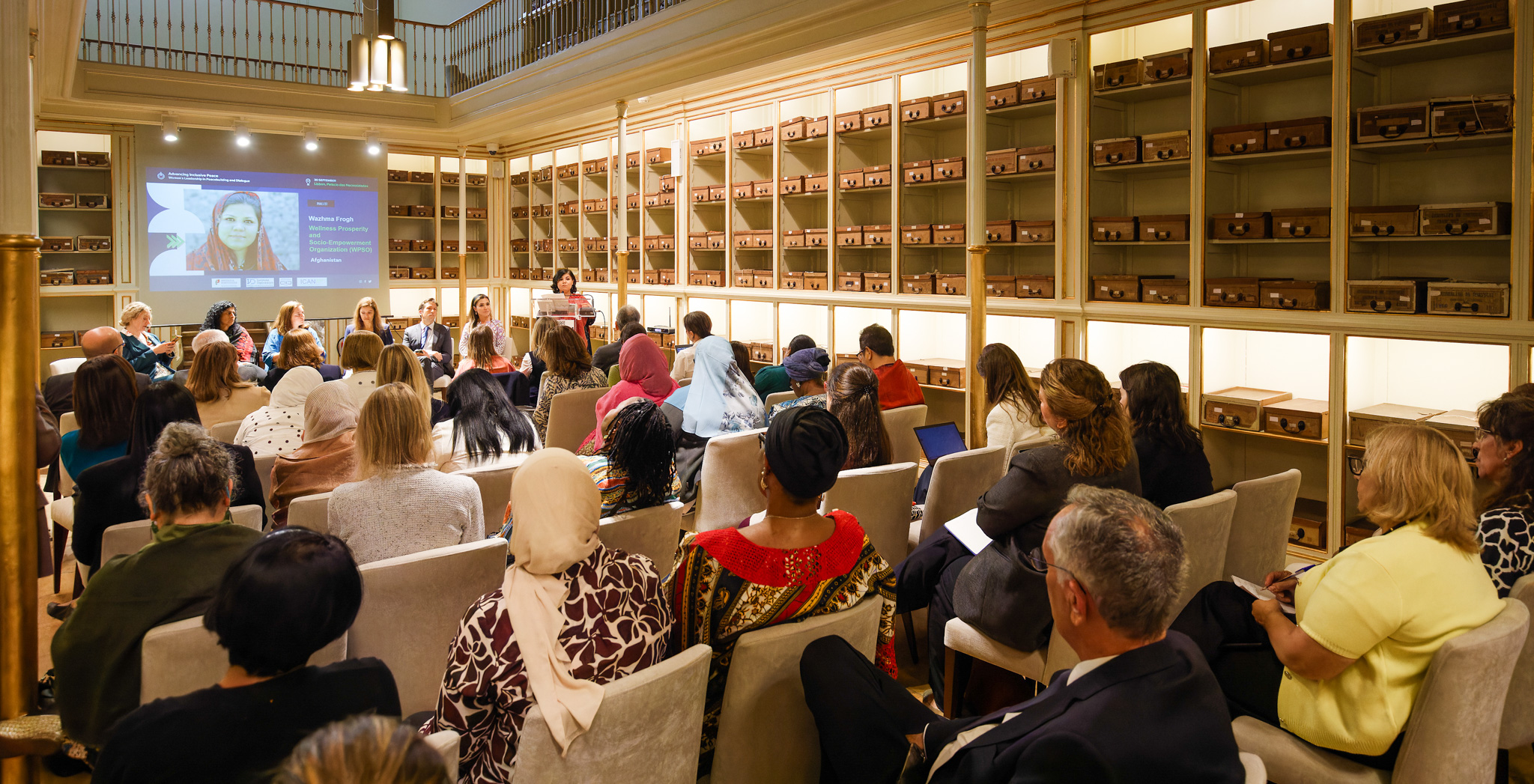
The roundtable was attended by 23 women peacebuilders from conflict-affected countries, each carrying stories of resilience forged in contexts of violence, displacement, and daily survival. They are the ones who hold communities together when institutions collapse, who broker understanding across divides, and who continue to make peace even when war surrounds them.
In 2000, women from warzones demanded to be heard. The resulting Women, Peace and Security Agenda is not a western agenda, it comes from the lived realities of those on the frontlines, offering practical, transformative solutions to peace and security. Today, as we face overlapping crises from war and displacement to climate change and rising authoritarianism, the answers are not in more weapons, but in collaboration between states and civil society, and in listening to the women peacebuilders already leading the charge for peace. Said Sanam Naraghi Anderlini MBE, founder and CEO of the International Civil Society Action Network (ICAN)
The following WASL members contributed to the discussions: Lucy Talgieh, of Wi'am; The Palestinian Conflict Transformation Center, spoke of the unyielding will of Palestinian women to mediate amidst entrenched violence. From Afghanistan, Wazma Frogh, of the Wellness Prosperity and Socio-Empowerment Organization (WPSO), described the determination of women to remain active in their communities despite the gender apartheid imposed since the Taliban’s return in 2021. Nina Potarska, of the Women International League for Peace and Freedom (WILPF), Ukraine, recounted the painstaking work of building peace at the local level even as the war rages on.
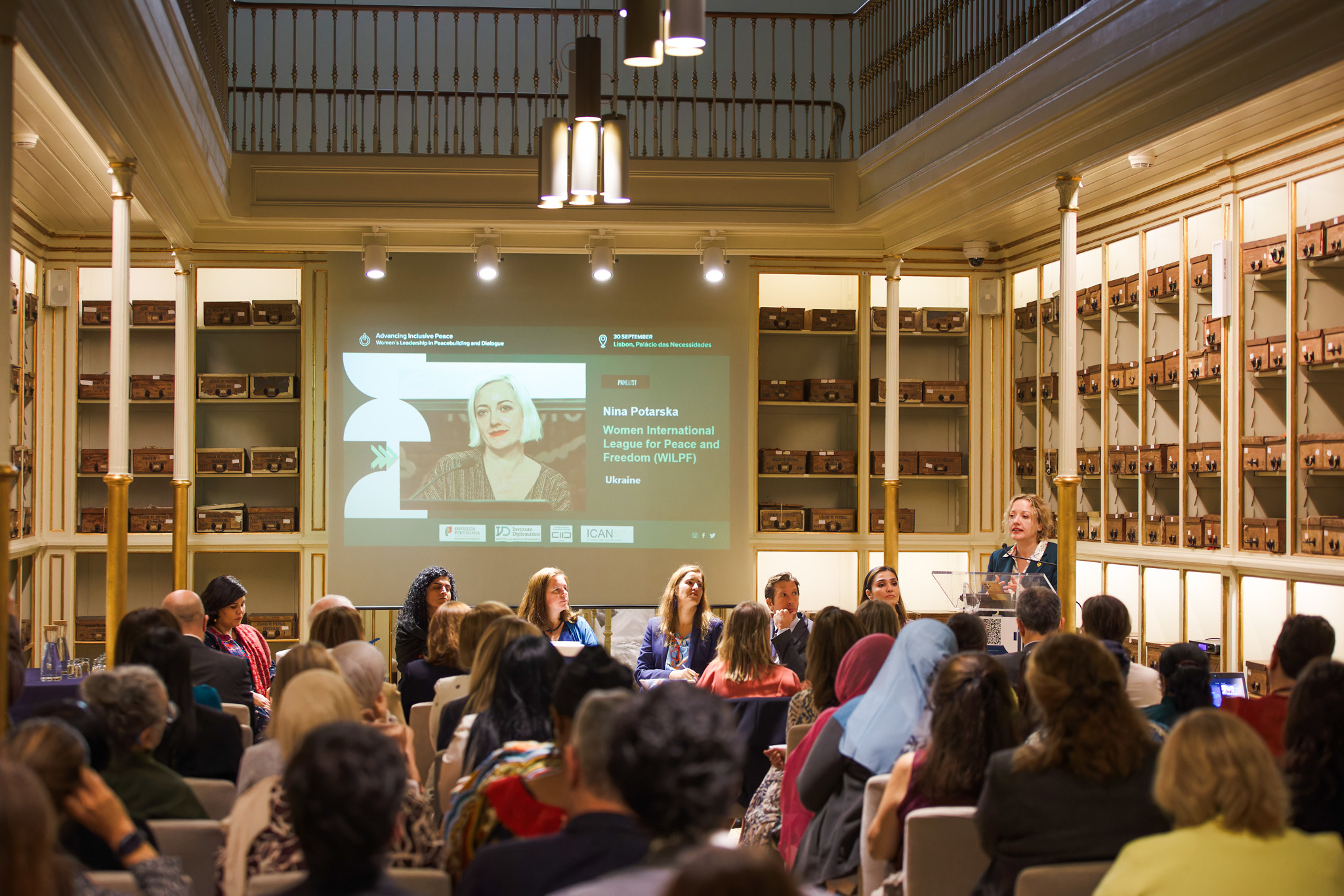
Their testimonies grounded the discussion in lived reality, reminding participants that behind every policy framework are individuals whose courage sustains societies in crisis.
Bridging Voices: Policy and Practice
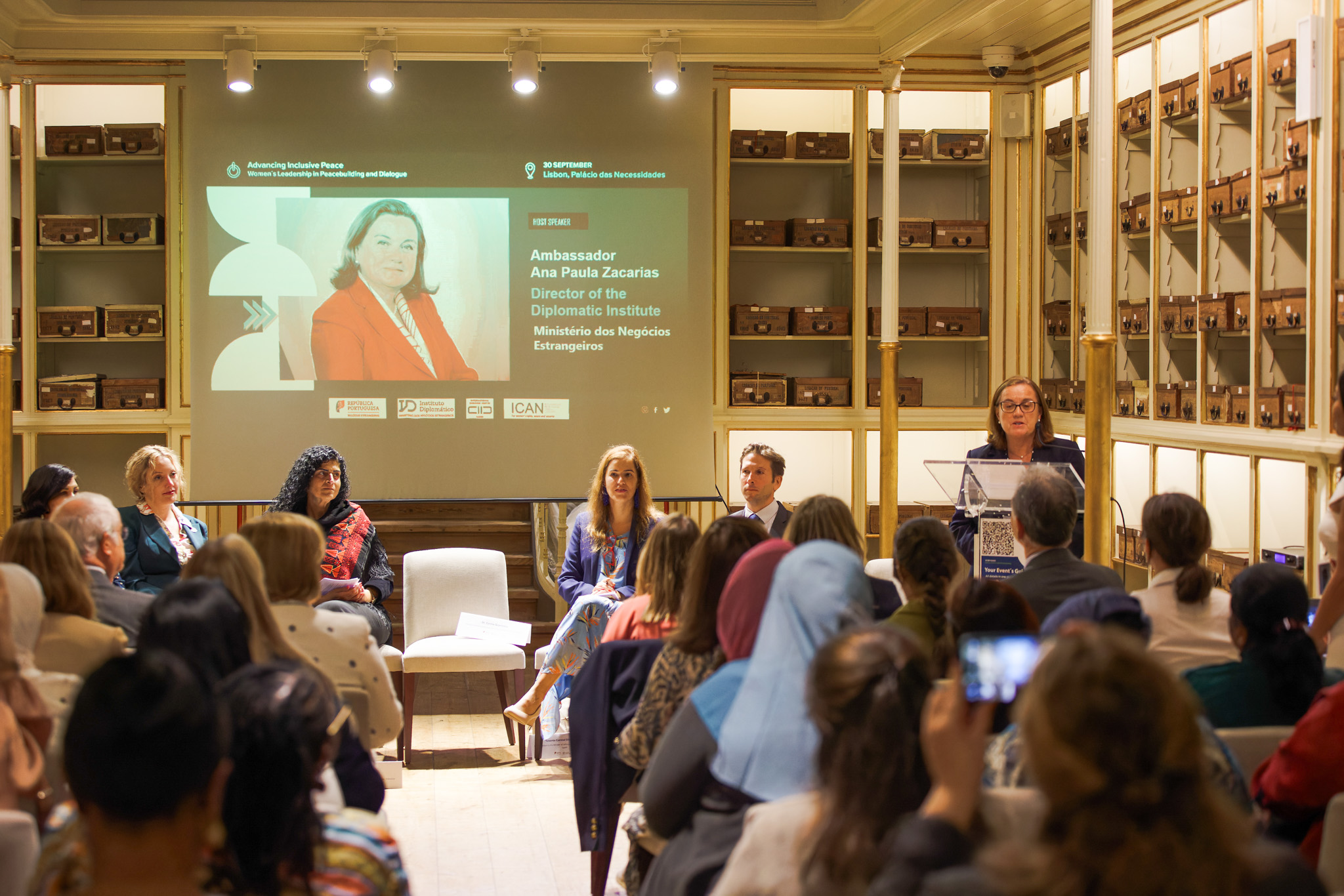
Following these powerful accounts, policymakers and experts joined the panel to explore the critical next steps.
Dr. Carina Quaresma, President of Portugal’s Commission on Citizenship and Gender Equality, underscored the role of public institutions in embedding women’s participation into governance structures. Tenente-Coronel Diana Morais, Gender, Peace and Security expert and former Senior Advisor to the Portuguese Ministry of National Defence, reflected on how defence and security investments can either reinforce or undermine inclusive peace, depending on how gender equality is prioritized.
Representing KAICIID, Agustin Núñez-Vicandi highlighted the role of engaging religious and traditional leaders, especially in patriarchal societies where women’s voices are often suppressed. He stressed that peacebuilding must confront cultural barriers with dialogue, not avoidance.
From Lisbon to the World
In his closing remarks, Ambassador António de Almeida Ribeiro, Acting Secretary General of KAICIID, captured the weight of the day. “These voices are the ones holding together the very fabric of our societies and are shaping the future of peace,” he said. He reaffirmed KAICIID’s commitment to creating safe spaces where dialogue bridges divides, and pledged support for Portugal’s upcoming National Action Plan on Women, Peace and Security.
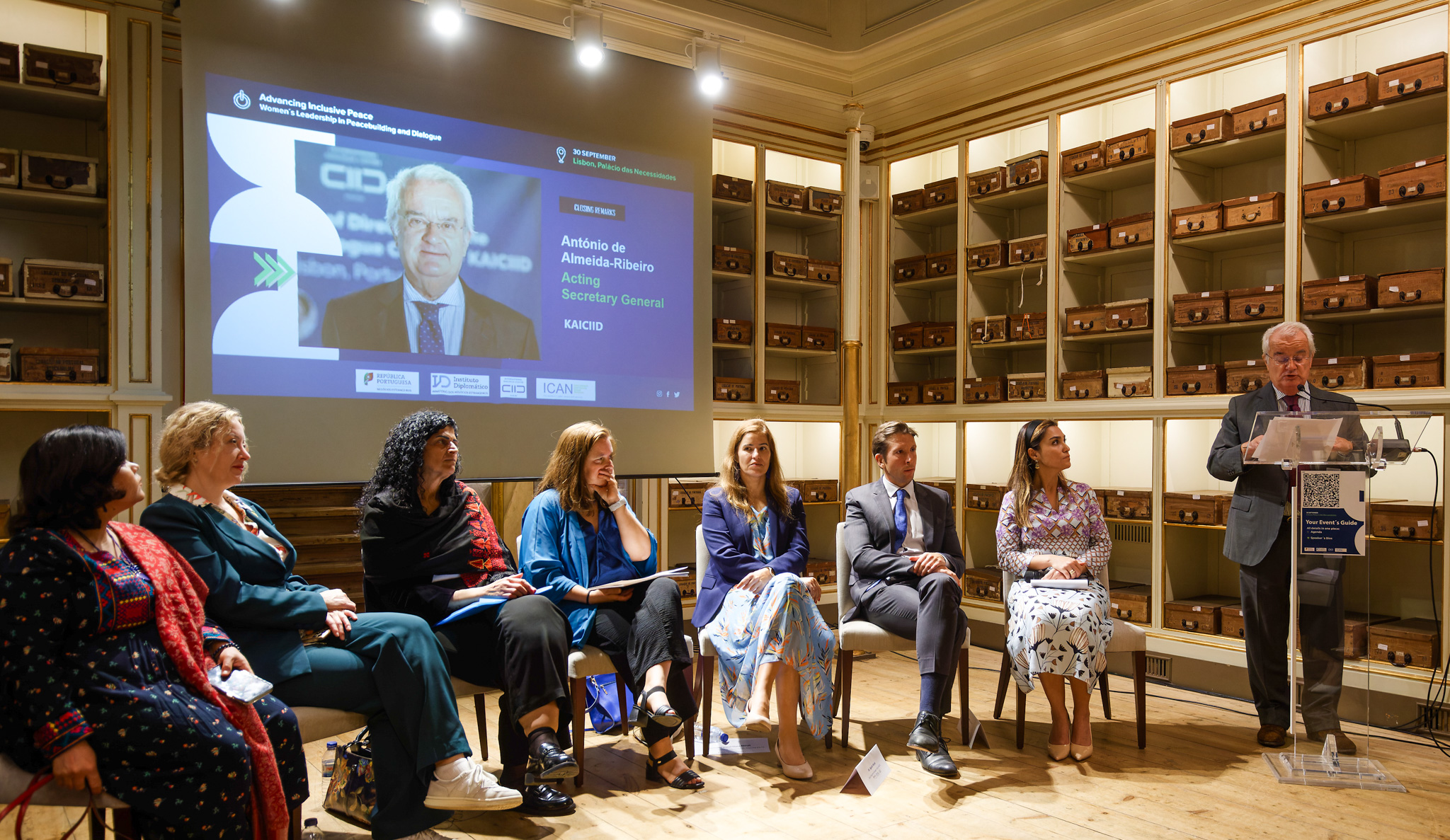
Looking ahead, Ambassador Ribeiro pointed to KAICIID’s forthcoming global convening in Rome, organized with the Dicastery for Interreligious Dialogue, as a continuation of this momentum. KAICIID’s role in this event and the one in Rome is connecting local realities with national and religious institutions, advancing dialogue-driven and inclusive peace.
A Call for Recognition
As the event closed, one message resonated above all: women peacebuilders are not side actors in peace processes. They are leaders, negotiators, and community builders who must be recognized, protected, and supported.
For many of the women present, this roundtable was not simply a forum, but a rare moment of visibility and recognition. As applause filled the room in Lisbon, it was clear that inclusive peace is not a distant aspiration; it is already being built by those who refuse to give up, even in the face of war.
Through its partnership with the International Civil Society Action Network (ICAN), KAICIID amplifies the voices of women peacebuilders who stand at the frontlines of conflict. ICAN convened their WASL partners in Lisbon for a week-long workshop, Our Strategies, Our Peace: Women Peacebuilders in their Own Words,” to document their lived strategies, preserve their legacies, and inspire future generations. Together, the two organisations connect grassroots leaders with policymakers, bridging the gap between local realities and international frameworks. This collaboration ensures that the Women, Peace and Security agenda is not only discussed in global capitals but rooted in the lived experiences of those who carry the heaviest burdens of war while continuing to build peace.

